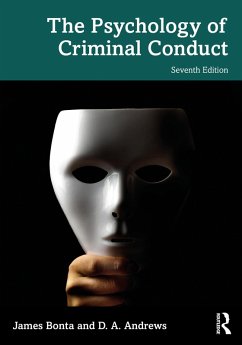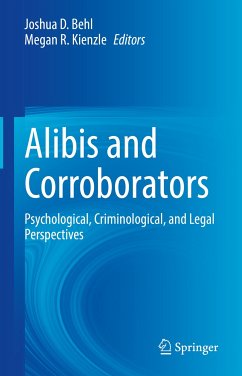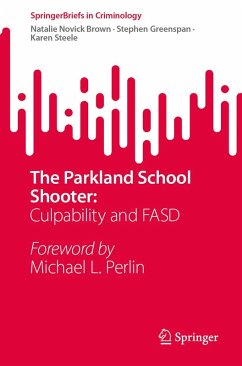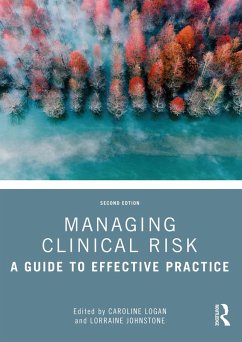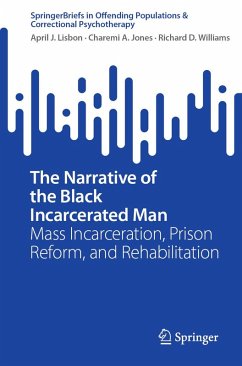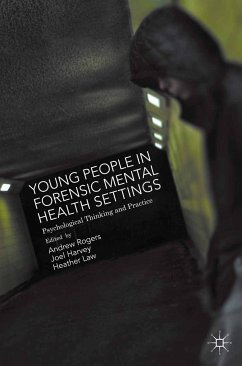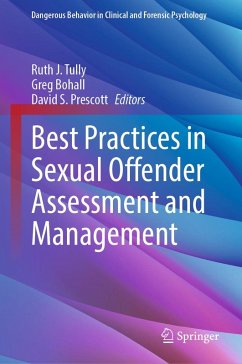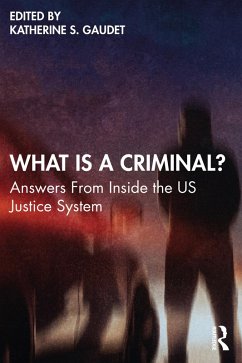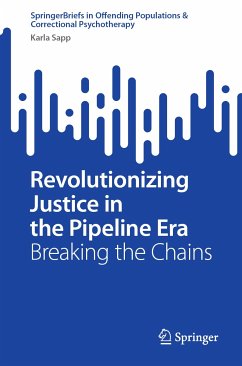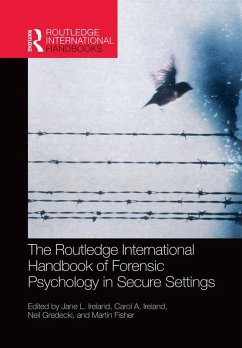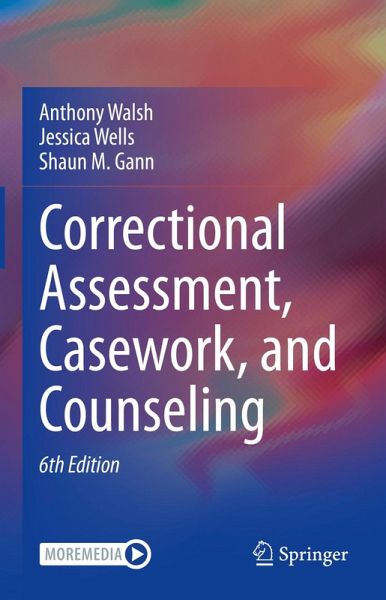
Correctional Assessment, Casework, and Counseling (eBook, PDF)
Versandkostenfrei!
Sofort per Download lieferbar
88,95 €
inkl. MwSt.
Weitere Ausgaben:

PAYBACK Punkte
44 °P sammeln!
This book combines the latest in sociology, psychology, and biology to present evidence-based research on what works in community and institutional corrections. It spans from the theoretical underpinning of correctional counseling to concrete examples and tools necessary for professionals in the field.This book equips readers with the ability to understand what we should do, why we should do it, and tools for how to do it in the field. It discusses interviewing, interrogating, and theories of directive and nondirective counseling, including group counseling. It discusses the strengths and weak...
This book combines the latest in sociology, psychology, and biology to present evidence-based research on what works in community and institutional corrections. It spans from the theoretical underpinning of correctional counseling to concrete examples and tools necessary for professionals in the field.
This book equips readers with the ability to understand what we should do, why we should do it, and tools for how to do it in the field. It discusses interviewing, interrogating, and theories of directive and nondirective counseling, including group counseling. It discusses the strengths and weaknesses of various correctional approaches such as cognitive-behavioral therapies, group counseling, and therapeutic communities. It introduces ethical and legal considerations for correctional professionals.
With an explanation of the presentence investigation report, case management, and appendices containing a variety of classification and assessment instruments, this volume provides practical, hands-on experience. Students of criminal justice, psychology and social work will gain an understanding of the unique challenges to correctional success and practical applications of their studies.
"This book is a teacher/student/practitioner's dream. Grounded in theory and evidence-based research on best practices, it is accessible, well-written, filled with sound insights and tools for working with criminal justice clients. I have used and loved each new edition of this fine text." - Dorothy S. McClellan, Texas A&M University-Corpus Christi
This book equips readers with the ability to understand what we should do, why we should do it, and tools for how to do it in the field. It discusses interviewing, interrogating, and theories of directive and nondirective counseling, including group counseling. It discusses the strengths and weaknesses of various correctional approaches such as cognitive-behavioral therapies, group counseling, and therapeutic communities. It introduces ethical and legal considerations for correctional professionals.
With an explanation of the presentence investigation report, case management, and appendices containing a variety of classification and assessment instruments, this volume provides practical, hands-on experience. Students of criminal justice, psychology and social work will gain an understanding of the unique challenges to correctional success and practical applications of their studies.
"This book is a teacher/student/practitioner's dream. Grounded in theory and evidence-based research on best practices, it is accessible, well-written, filled with sound insights and tools for working with criminal justice clients. I have used and loved each new edition of this fine text." - Dorothy S. McClellan, Texas A&M University-Corpus Christi
Dieser Download kann aus rechtlichen Gründen nur mit Rechnungsadresse in A, B, BG, CY, CZ, D, DK, EW, E, FIN, F, GR, HR, H, IRL, I, LT, L, LR, M, NL, PL, P, R, S, SLO, SK ausgeliefert werden.



